You can also listen to the report in an audio version.
In the early hours of Friday morning, every chair in Clausterney Sipka is occupied half an hour before the debate. In the pub on the grounds of the Břevnov Monastery, Ukrainian and Czech languages mix as Vít Rakušan, leader of the STAN movement and Minister of the Interior, convenes one of his “uncensored debates” here.
He arrived just before the start and admitted in the opening sentence that today would be a bit complicated as the entire debate would be translated into Ukrainian. “But we all understand Czech,” a woman's voice with a Ukrainian accent is heard from the crowd, and she receives a sudden round of applause.
Nevertheless, it was the Austrian who first asked the Ukrainians: “Which of you faced the expression of hatred?” After that many hands are raised in the hall. After the question of how many refugees received a helping hand from the Czechs, it was many times more.
“We came to make up our own minds”
This time, the leader of the STAN movement exchanged peripheral circles where relatively loud criticism of the government coalition was heard in a pub hall in the capital's sprawling centre, debates.
But he decided to give voice to the Ukrainian community and ask questions after previous debates. In many cities, they became so intense that some participants directed insults and hate speech towards Ukrainians.
Report of the first spirited debate at Corvina
One of the Ukrainians who decided to take the opportunity to speak with the minister was Oleg Kostenko. Argued with wife and daughter in high school in Czech Republic.
They've lived here for six years and the Austrian has only one question: “Eligible Ukrainians can stay here even after their temporary protection expires,” Oleg tells me before the discussion begins in broken Czech. He mainly wants to listen to his three acquaintances from Ukraine, who are currently troubled by the matter.
Even sitting in the hall are two friends who met at university in the Czech Republic, driven from their homes in Ukraine after the war. They plan to study at the Academy of Fine Arts for the next six years.
They both speak good Czech now, but they don't have a single question about the minister. They are curious about the atmosphere of the evening. “We saw some videos of desolation on TikTok, so we came to make our own decision,” explains Lilly. However, neither she nor her friend Heorhii have yet encountered any untoward conflict outside of social networks.”Fortunately, no, we are all brave on the Internet,” says the young woman with a smile.
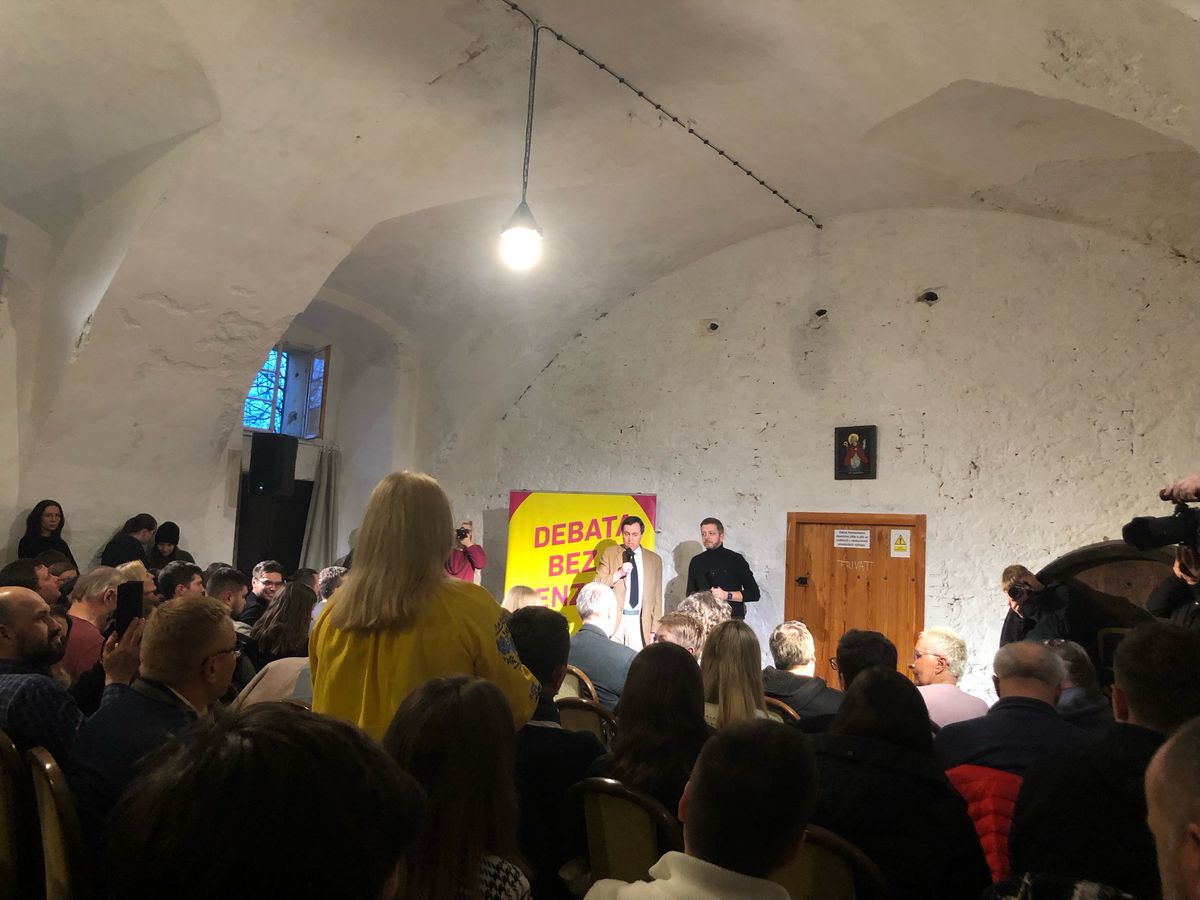
Photo: Magdalena Kulasova
“How long will the Czech Republic tolerate the accumulation of pro-Russian forces in the Orthodox Church?” asks a woman from Mykolive.
Dana Drapova, head of the State Office for Nuclear Safety, also attended the debate, and the Austrian would drink a pint of beer before the debate began.
Ukrainians among us
While previous gatherings have always expressed a negative view of Ukrainian refugees, the evening dedicated directly to Ukrainians has so far been conducted with a more subdued spirit.
Questions were asked about extending temporary asylum, the government's fight against disinformation or how Europe plans to defend itself against Russia. One of the participants wondered how long the Czech Republic would tolerate the accumulation of pro-Russian forces in the Orthodox Church. “Believe me, this is not a problem that the Czech state cannot deal with,” replied the Austrian, saying he could not comment further on the matter.
I think that STAN has a definite pro-Western orientation and supports Ukraine in the conflict against Russia, among other points, voters want to decide whether or not they can sympathize with that party. .
The Home Minister expressed his desire to make a decision at the European level by the end of June on the issue of extending temporary protection. The agency allows refugees to receive public health insurance, study in schools and work. Currently extended till March 2025.
From Ministry of Home Affairs data It follows, a total of about 380,000 Ukrainians now live in the Czech Republic, up from 200,000 before the war. About 120,000 of them now have jobs, the Austrian said during the debate.
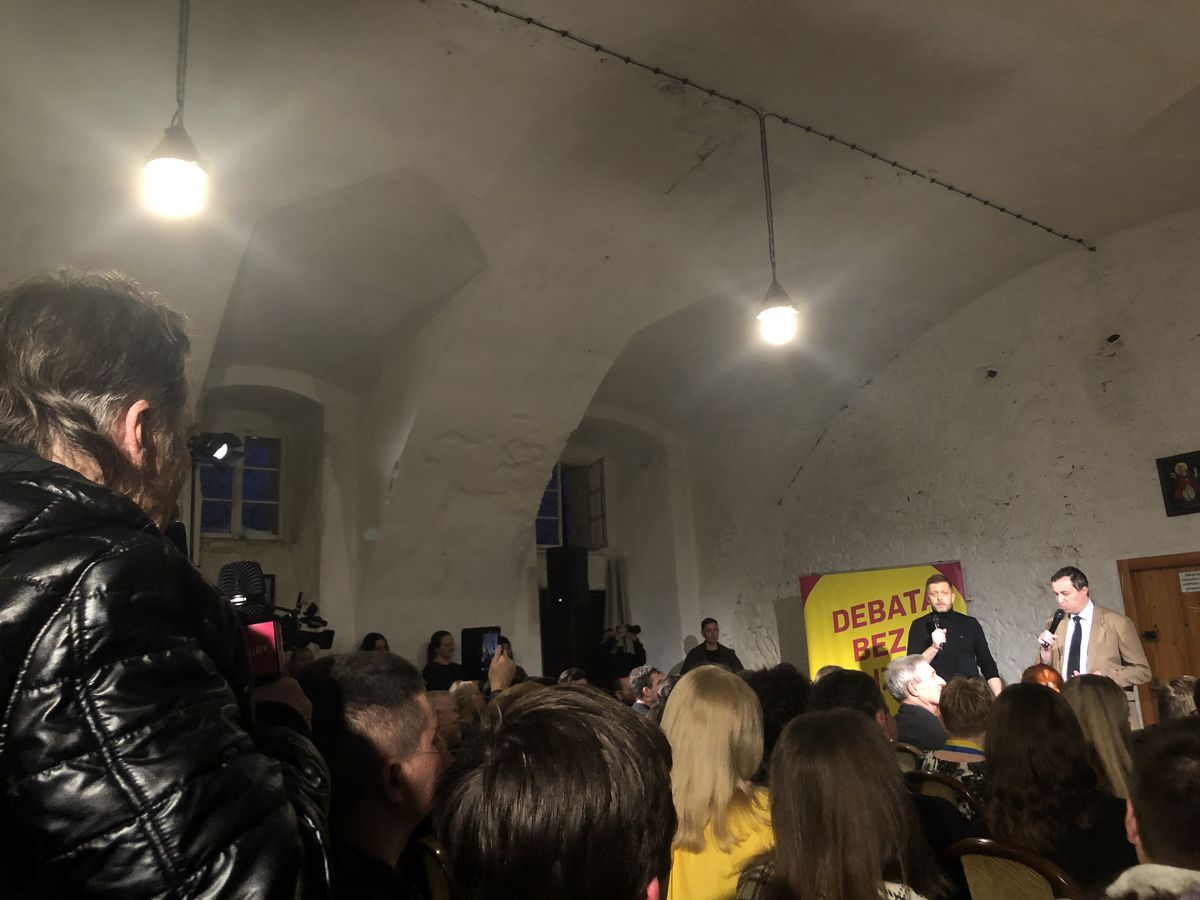
Photo: Magdalena Kulasova
“How many Ukrainians work for us?” asks an old man.
“What are the others doing?” A man with a microphone in his hand asks. “Children and pensioners,” the crowd promptly answers him.
“Some take care of their children because they are young and their mothers are at home with them. The second group, for example, is trying to find their way and find work in the Czech Republic. Seven out of ten refugees of working age who came here after the war are already working,” adds the Austrian, adding that we are one of the most successful countries in Europe in this regard.
Meanwhile, he also mentioned that about 47 billion has been given to them so far for humanitarian benefits. Thanks to economically active refugees, 35 billion have already returned to the budget.
Current data on the situation of Ukrainian refugees is summarized here:
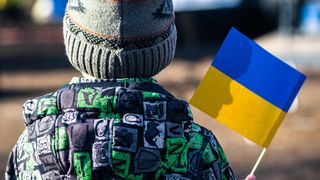
At the same time, the leader of the STAN movement denied, according to him, information that is often spread on the misinformation scene: that crime has increased in the Czech Republic with the arrival of Ukrainian refugees.
“Currently, more than five percent of Ukrainians live on the territory of the Czech Republic. The share of Ukrainians in total crimes is about 4.3 percent. Now I can be accused of simplifying statistics, I am not a mathematician, but I found out from this that Ukrainians behave more politely than the Czechs,” said the Austrian.
Debate on Corvina in a photo report
See pictures of Austria's first debate, where the inhabitants of Karvina came to question him. Seznam Zpráv photographer Michal Turk's gallery takes you to the center of a heated debate in which the criticism didn't go far.
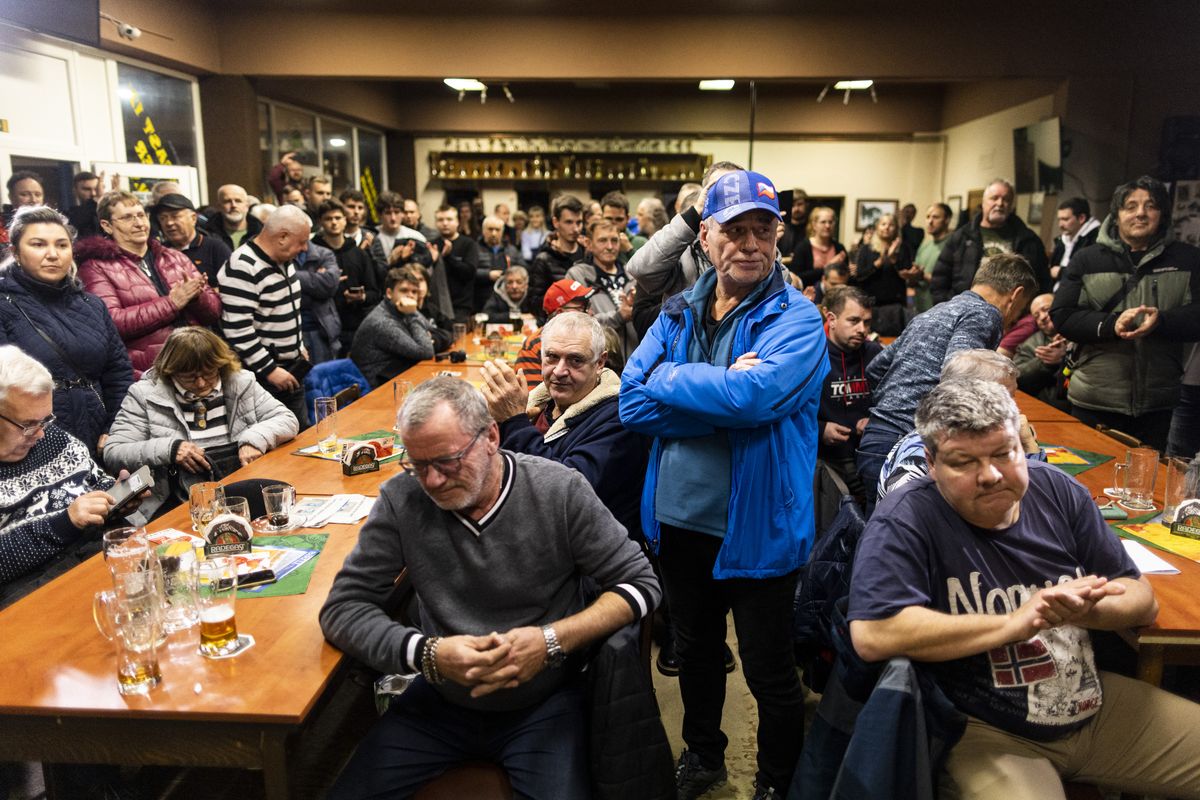
Photo: Michal Turek, Seznam Zpravy
Persisting on the same side as the barricade
According to Karel Kominek of the political marketing agency, the newly launched campaign, which also includes meetings with citizens over beer, will help the movement create a positive image. But only with a group that already stands on the same side of the barrier – namely the Austrians, ie STAN, who agree that they can give their votes in the future.
“I think that Stan has a clear pro-Western orientation, wants to convey that he supports Ukraine in the conflict against Russia, and on other points voters decide whether they can sympathize with that party or not,” he told Seznam Zpravy, a political marketing expert.
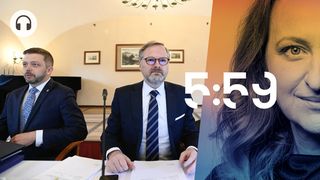
In a year where three elections await in the Czech Republic, in addition to trips to Austria, the movement began with a new, easily memorable scene dominated by pink and yellow. According to Kominek, the entire campaign of the successful Slovak marketer Michael Repa's workshop is mainly aimed at gaining more attention from the voters and a certain separation from the current government coalition.
The podcast below left reports on the second debate in Sokolo

“They struggle with the fact that they're not visible within the coalition, they're basically gray. “That's why they're doing the whole campaign — even controversial steps like debating with people in constituencies with no voters — to get more media space, which they'd have a hard time getting in other situations,” Kominek says.
In March, another quadruple debate awaits the Austrian. They go to Vyškov, Přerov, Ústí nad Labem and end the “discussion line” in Havířov.
Two years of war
Correspondent News List John Novak A photographer Stanislav Kruber Describes the reality of the country, which has faced two years of brutal Russian aggression from the east of Ukraine. They are moving closer to the front in the region of Avdizhivka, a city that Ukraine lost a few days ago.